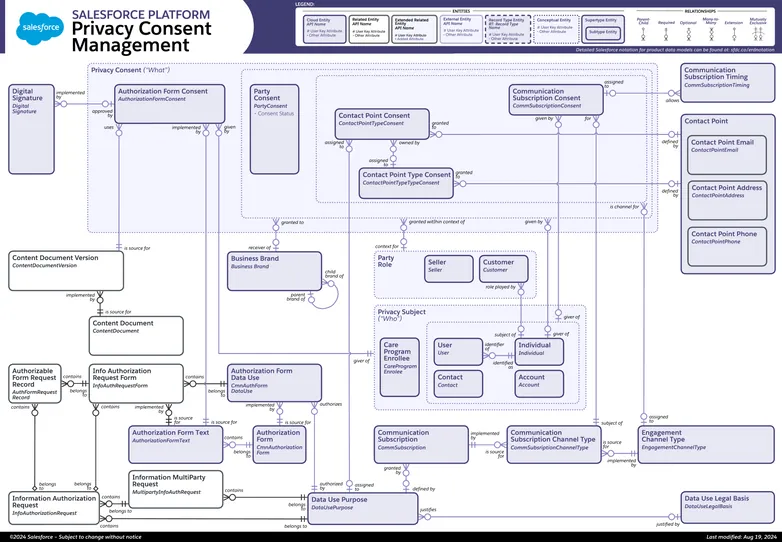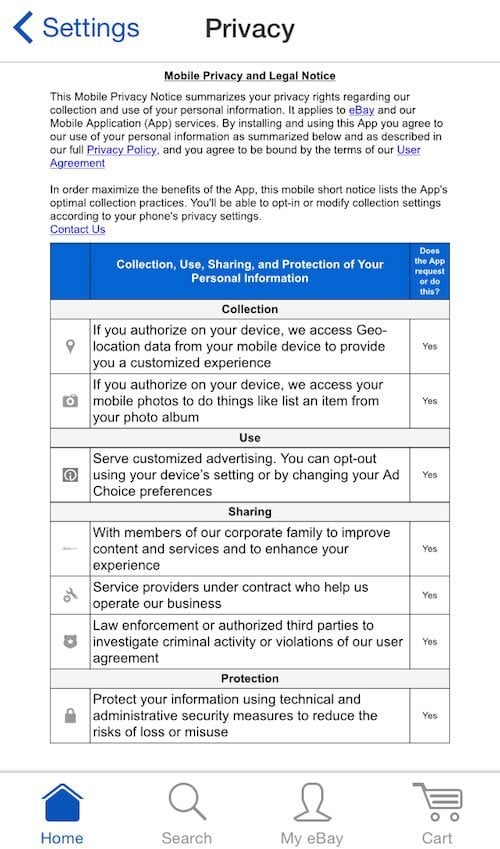In 2020, ZoomInfo found itself at the center of a legal storm that would send ripples through the business intelligence sector. A class action lawsuit alleging violations of privacy laws affected millions of individuals, myself included. I remember scrolling through my own professional profile on various data platforms, wondering how my information ended up there without my explicit consent.
The lawsuit, filed in the U.S. District Court for the Northern District of California, claimed that ZoomInfo had overstepped legal boundaries in its data collection practices. At the heart of the matter was the company’s massive database, boasting over 100 million professional profiles [DiCello Levitt]. This vast trove of information became the focal point of a heated debate about privacy rights in our increasingly digital world.
As the case unfolded, it became clear that this wasn’t just about one company’s practices. The ZoomInfo class action lawsuit highlighted a growing tension between the business need for data and individuals’ right to privacy. I found myself following the case closely, recognizing its potential to reshape how companies handle our personal information.
The allegations centered on violations of the California Consumer Privacy Act (CCPA) and other privacy laws. It’s a bit ironic, isn’t it? A law meant to protect consumer privacy became the very tool to challenge a company built on gathering and selling professional data.
But here’s where it gets interesting. ZoomInfo’s defense hinged on the concept of “web presence.” They argued that information available online is fair game for collection. As someone who’s cautious about my online footprint, this argument made me pause. Where do we draw the line between public information and personal privacy?
The lawsuit’s impact extended far beyond the courtroom. Other B2B data providers started looking over their shoulders, reviewing their own practices to avoid similar legal challenges. It was like watching dominoes fall in slow motion – one company’s legal trouble sparked an industry-wide reassessment.
I couldn’t help but think about the broader implications. How many other companies out there are sitting on mountains of our data, collected without our knowledge? It’s a sobering thought.
As the case progressed, the complexities of modern data collection practices came into sharp focus. ZoomInfo’s methods of gathering and utilizing data were put under a microscope. Their web scraping techniques, which pulled information from various online sources, became a central point of contention.
I remember trying to wrap my head around the scale of it all. Over 100 million professional profiles in their database – that’s more than the population of most countries! It’s staggering to think about the sheer volume of personal and professional information floating around in these databases.
One aspect that particularly irked many was ZoomInfo’s opt-out process. Users reported it was like trying to navigate a labyrinth, often finding their information reappearing on the platform weeks after requesting its removal. I can relate to this frustration. There’s nothing quite like the feeling of playing whack-a-mole with your own personal data.
Take Jane Doe, a marketing professional who discovered her entire work history, email address, and phone number listed on ZoomInfo without her consent. Despite her best efforts to remove this information, she found it popping back up like an unwelcome guest at a party. Jane’s experience wasn’t unique – it was a common thread running through many affected individuals’ stories.
This struggle to maintain control over personal information became a crucial aspect of the lawsuit. It highlighted a fundamental question: in an age where our digital footprints are seemingly indelible, do we truly have the right to be forgotten?
The case also brought to light the challenges of applying existing privacy laws to new data collection practices. The CCPA, which went into effect on January 1, 2020, became a key player in this legal drama. Its definitions of personal information and data sale were put to the test, challenging how they apply in the B2B context.
As I delved deeper into the case, I found myself pondering the extraterritorial application of California’s privacy laws. Could a New York-based professional like myself claim protections under the CCPA if a California-based company like ZoomInfo processed my data? It’s a head-scratcher that underscores the complexities of privacy law in our interconnected world.
The ripple effects of this lawsuit extended far beyond ZoomInfo. The entire B2B data industry found itself at a crossroads. Companies began reassessing their data collection and usage practices, recognizing the need for greater transparency and compliance.
I watched as industry discussions shifted towards ethical data collection and usage. It was like witnessing a collective awakening to the responsibilities that come with handling vast amounts of personal information. Many companies started implementing more robust consent and opt-out mechanisms, a move that was long overdue in my opinion.
The settlement landscape of the ZoomInfo lawsuit was equally intriguing. With a total settlement of $29.55 million, including $14.23 million allocated for the California class alone [Top Class Actions], it sent a clear message about the potential costs of privacy violations.
But it wasn’t just about the money. The settlement included non-monetary components aimed at addressing the root causes of the privacy concerns. ZoomInfo was required to implement more transparent data collection and usage policies. As someone who values privacy, I found this aspect particularly encouraging. It’s one thing to pay a fine, but making systemic changes? That’s where real progress happens.
One of the most interesting outcomes was the creation of a “Do Not Contact” database. This measure aimed to give individuals greater control over their personal information and how it’s used by the company. I couldn’t help but think, “It’s about time!”
Imagine John Smith, who finds his contact information on ZoomInfo and wishes to be removed. Now, he can add his details to this database, preventing ZoomInfo from collecting or using his information in the future. It’s a small step, but a significant one in the grand scheme of data privacy.
The claims process for affected individuals involved several steps and potential challenges. Claimants typically needed to provide proof of inclusion in ZoomInfo’s database without consent and documentation of attempts to opt-out or remove their information. It’s a bit like being asked to prove a negative, isn’t it? “Show us how you didn’t give permission for something you didn’t know was happening.”
The settlement benefits four statewide classes in California, Illinois, Indiana, and Nevada, with potential individual rewards of up to $1,942 [Top Class Actions]. It’s a substantial amount, but it raises questions about the true value of our personal information in today’s data-driven world.
As we look to the future, the long-term implications of this lawsuit are significant. It sets precedents that may influence future litigation against data aggregators and shape interpretations of privacy laws. I can’t help but wonder if we’re witnessing the beginning of a new era in data privacy.
The case underscores the necessity for clearer regulations regarding the collection and use of publicly available information. It may lead to more stringent enforcement of existing privacy laws and potentially new legislation. As someone who’s been following this closely, I’m eager to see how lawmakers respond to these challenges.
There’s already talk of potential legislative responses at both state and federal levels. Some are calling for federal privacy legislation to create a uniform standard across the United States. Others are focusing on creating clearer guidelines for the use of publicly available information by data aggregators. It’s a complex issue, but one that desperately needs addressing.
In the corporate world, we’re seeing a shift towards more consent-based data models. Companies are developing new methods to obtain explicit consent for data collection and use. There’s a growing emphasis on providing individuals with easy-to-use tools for managing their data preferences. It’s a positive trend, in my opinion, but one that’s long overdue.

Source: architect.salesforce.com
As we navigate this new landscape, it’s crucial to stay informed about our rights and the evolving nature of data privacy. The ZoomInfo lawsuit serves as a stark reminder of the value of our personal information and the importance of vigilance in protecting it.
For those interested in diving deeper into the world of class action lawsuits and their impact, I recommend checking out this informative video:
Source: youtube.com
In conclusion, the ZoomInfo class action lawsuit has been a wake-up call for both businesses and individuals. It’s reshaped the landscape of data privacy and set new standards for how companies handle our personal information. As we move forward, it’s clear that the conversation around data privacy is far from over. It’s up to all of us to stay informed, assert our rights, and hold companies accountable for their data practices.
Remember, in this digital age, our personal information is one of our most valuable assets. Let’s make sure we’re doing everything we can to protect it. The ZoomInfo lawsuit has become a catalyst for change in the B2B data industry. Companies are now investing more in privacy impact assessments and data protection officers. I’ve noticed a trend towards more transparent data collection practices, with clearer disclosures to individuals. It’s refreshing to see businesses adopting more conservative approaches to data collection to minimize legal risks.
This shift isn’t just about avoiding lawsuits; it’s about rebuilding trust with consumers. As someone who values my privacy, I appreciate seeing companies take proactive steps to protect personal data.
The case has also highlighted the challenges of class certification in data privacy cases. Demonstrating uniform harm across a large group can be tricky due to varying levels of data exposure and individual circumstances. It’s not as straightforward as, say, a product liability case where everyone bought the same faulty item.
Defining who qualifies as a class member in the ZoomInfo lawsuit was a complex process. It involved considering factors such as the type of data collected, the time frame of collection, and the individual’s relationship to ZoomInfo’s services. Here’s a breakdown of the class eligibility criteria:
| Class | Eligibility Criteria | Time Frame |
|---|---|---|
| California | Residents whose name appeared on ZoomInfo.com for the first time | Jan. 9, 2020 – March 27, 2024 |
| Illinois | Residents whose name appeared on ZoomInfo.com for the first time | April 15, 2020 – March 27, 2024 |
| Indiana | Residents whose name appeared on ZoomInfo.com for the first time | March 27, 2022 – March 27, 2024 |
| Nevada | Residents whose name appeared on ZoomInfo.com for the first time | March 27, 2022 – March 27, 2024 |
The outcome of this case is likely to influence future litigation against data aggregators and shape how privacy laws are interpreted and applied. It may establish new standards for what constitutes consent in data collection and influence how courts interpret the scope and application of privacy laws like the CCPA.
For those interested in understanding the broader implications of such legal precedents, our article on the impact of landmark cases on legal landscapes provides valuable insights.
The ZoomInfo lawsuit has also brought attention to the challenges of proving harm in data privacy cases. Demonstrating unauthorized use or disclosure of personal information isn’t always straightforward. The settlement may recognize different levels of harm based on the type and extent of data collected.
In response to these challenges, we’re seeing a rise in consent-based data models in the B2B intelligence industry. Companies are exploring alternative data sources that don’t rely on collecting personal information without consent. It’s a significant shift, and one that I believe will benefit both businesses and consumers in the long run.

Source: termsfeed.com
This case has also sparked discussions about the need for federal privacy legislation in the United States. The patchwork of state laws can be confusing for both businesses and consumers. A uniform federal standard could provide clarity and consistency in data privacy protections across the country.
As we navigate this evolving landscape, it’s crucial for individuals to stay informed about their rights and for businesses to prioritize ethical data practices. The ZoomInfo case serves as a reminder that in the digital age, data privacy is not just a legal issue, but a fundamental right that we must actively protect.
For those looking to dive deeper into the complexities of privacy regulations, our article on navigating complex privacy regulations offers valuable insights.
In the wake of this lawsuit, we’re seeing a renewed focus on corporate responsibility in data handling. Companies are reassessing their data collection practices, not just to comply with laws, but to build trust with their customers. It’s a positive shift that I hope will continue.
The ZoomInfo case has also highlighted the importance of transparency in data practices. Businesses are now more likely to provide clear, accessible information about how they collect and use personal data. This transparency is crucial for building trust with consumers and ensuring informed consent.
As we move forward, it’s clear that the conversation around data privacy is far from over. The ZoomInfo lawsuit has set the stage for ongoing discussions about the balance between business needs and individual privacy rights. It’s a complex issue, but one that’s crucial to address as we continue to navigate our increasingly digital world.
For businesses, the key takeaway is the need for proactive privacy measures. Implementing robust consent mechanisms, providing clear opt-out options, and regularly auditing data practices are no longer optional – they’re essential for operating in today’s privacy-conscious environment.
For individuals, this case underscores the importance of being aware of how our data is being used. It’s a reminder to regularly check our online presence, understand the privacy policies of the platforms we use, and exercise our rights when it comes to our personal information.
As we wrap up this deep dive into the ZoomInfo class action lawsuit, it’s clear that its impact extends far beyond a single company or industry. It’s a landmark case that has reshaped the landscape of data privacy and set new standards for how companies handle our personal information.
The lessons learned from this case will undoubtedly influence future legislation, corporate policies, and individual attitudes towards data privacy. As we continue to grapple with these issues, one thing is certain: the value we place on our personal information and the lengths we’re willing to go to protect it have never been higher.
In this new era of data privacy awareness, staying informed and vigilant is key. Whether you’re a business owner navigating compliance issues or an individual concerned about your online presence, the ZoomInfo case serves as a powerful reminder of the importance of data privacy in our digital age.




